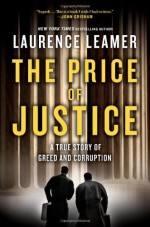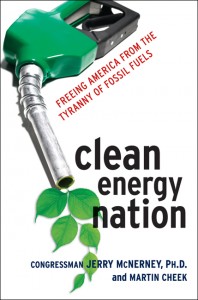 Book Review ~ THE PRICE OF JUSTICE by Laurence Leamer
Book Review ~ THE PRICE OF JUSTICE by Laurence Leamer
For the reader on your Christmas gift list, “The Price of Justice†is a heart wrenching true story of the pervasive effect of coal mining on West Virginia’s citizens. This book has special relevance for citizens that live with coal mining and recognize its influence on their community, government, and judicial system.
The personal struggle of two lawyers to bring justice to the victims of a powerful coal baron in West Virginia will captivate and inspire the hope that all of us have for the oppressed and powerless.
Dave Fawcett, a 3rd generation Pittsburgh attorney, and Bruce Stanley, raised in West Virginia, now a Pittsburgh attorney, took on the challenge of rectifying the injustice that Hugh Caperton and his Harmon Mining Company were subjected to by Don Blankenship, Chairman and CEO of Massey Energy.
Caperton took on a tremendous debt to acquire Harmon Mining and he cared deeply about making it successful for his family and employees. The loss of his mining company was devastating to him, but there was some comfort in the verdict of two juries that Blankenship was liable for fraudulent misrepresentation, concealment, and interference with contractual agreements.
Blankenship controlled the largest coal company in Appalachia, 4th in the nation with revenues of 2 billion in 2008. This book describes his powerful influence that was extensive throughout the state. He flexed his control with the help of friends in the court system. Blankenship was determined to destroy the United Mine Workers Union and with the help of a circuit court judge, Elliot Maynard, they together stopped a lengthy strike and diminished UMW’s influence with the miners. In 1996, Maynard was elected to a 12 year term in the West Virginia Supreme Court of Appeals which placed a friend of Blankenship in even higher places.
Although Fawcett and Stanley were awarded 50 million dollars in damages for Caperton, Massey appealed the ruling to the West Virginia Supreme Court of Appeals. The reader will marvel at the timing of the appeal to reverse the jury decision that was filed after an election in which Blankenship spent 3 million dollars to remove an incumbent and to elect Brent Benjamin. The court now had a more pro-business leaning, especially with Blankenship’s old friend, Justice Maynard and indeed the 50 million dollar verdict against Massey was reversed. Caperton had filed a request for Benjamin to recuse himself due to Blankenship’s financial support of his election, but Benjamin refused to disqualify himself.
Fawcett and Stanley thought the only way to get justice for Caperton was to be heard by the U. S. Supreme Court, but the chances for that were very slim. Certain events, however, occurred that changed the interest in Caperton and made it a federal issue.
Caperton et al. v. A. T. Massey Coal Co., Inc. was brought before the U. S. Supreme Court to address the issue of potential bias of Benjamin that denied due process to Caperton by reversing Massey’s 50 million dollar judgment by the West Virginia Supreme Court. The vote of the U. S. Supreme Court was 5-4 with Justice Kennedy providing the swing vote that concluded Benjamin should have recused himself.  After the victory for Caperton, the case was presented again to the West Virginia Supreme Court. Here, incredibly, the damages against Massey were dismissed again in a 4-1 vote. Massey and the coal baron prevailed and continued to dominate West Virginia politics.
The author relates how Blankenship insisted that coal be mined at any cost which created many hazards for the miners and several tragedies resulted. Two miners, Don Bragg and Ellery Hatfield, died in a fire at the Aracoma Mine owned by Massey. The safety issues that were thought to cause the fire were never addressed, and maximal production of coal at any cost continued. In longwall mining, there is continual formation of dust that must be covered or removed to prevent fires that could upon contact with methane gas explode. This is what happened on April 5, 2010 at the Upper Big Branch Mine in Montcoal, West Virginia. Twenty-nine miners were killed; since 1995, Upper Big Branch had been cited over 3000 times for safety violations with 2 given the day of the explosion.
Read how eight months later, Blankenship left Massey with a 10.9 million salary plus benefits and a 39 million retirement package. He left hundreds of residents with contaminated drinking water that resulted from his initiation of coal slurry injections into mine voids. The devastation in West Virginia of lost lives, lost mountains, and loss of community will endure; that is Don Blankenship’s legacy.
The story of politics, money, and greed is developed artfully and placed in context of a hard working community that is only trying to survive. Hugh Caperton kept going with the knowledge that by fighting Blankenship, he was doing the right thing for West Virginia. He showed true courage, conviction, and tenacity, but never received justice.
- Hardcover: 448 pages
- Publisher: Times Books; 1St Edition edition (May 7, 2013)
- Language: English
- ISBN-10: 0805094717
- ISBN-13: 978-0805094718
- Product Dimensions: 1.4 x 6.4 x 9.3 inches

